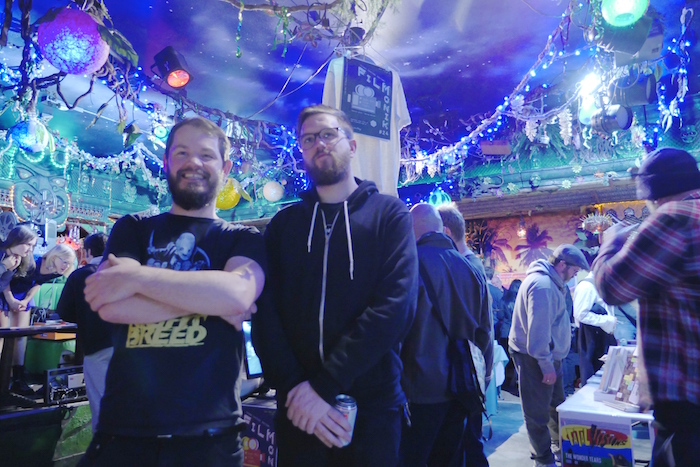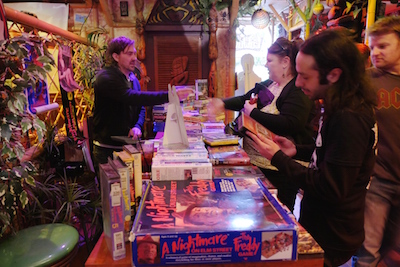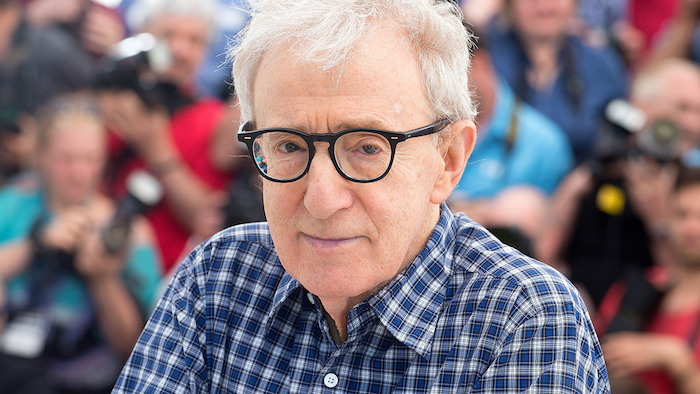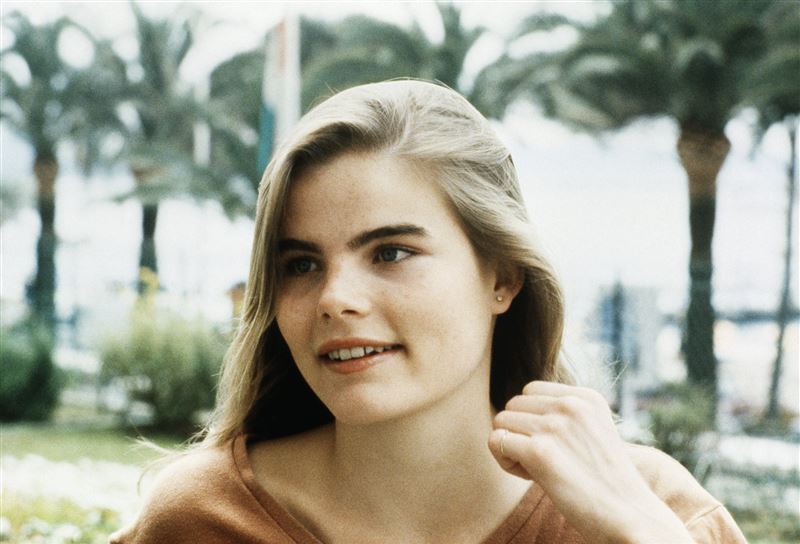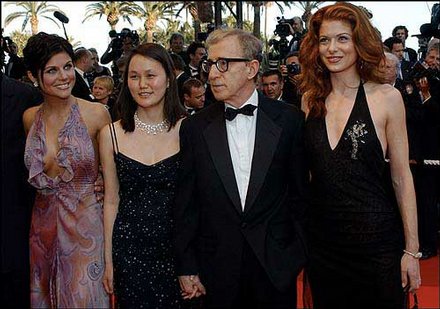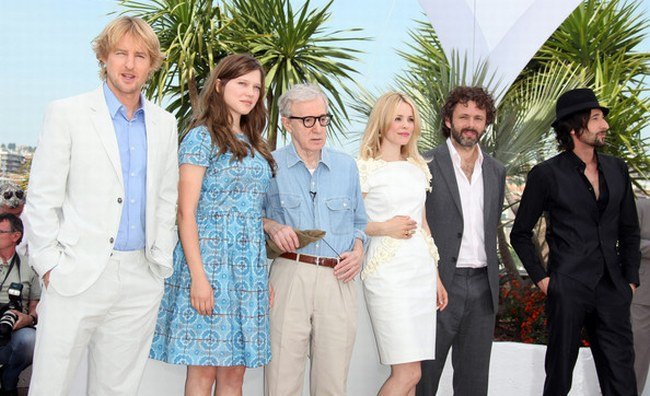DOC CRUSADER TARGETS PARENTAL ALIENATION EPIDEMIC
“[Parental Alienation is] the deliberate attempt by one parent to distance his/her children from the other parent and in doing so, the parent engages the children in the process of destroying the affectional ties and familial bonds that once existed." - Reena Sommer, Ph.D. M.Sc. (Family Studies), Ph.D. (Psychology & Family Studies); author of "Children's Adjustment to Divorce: The Case of Parental Alienation Syndrome"; 2004.

As soaring divorce rates in the 1970s left a previously uncharted emotional impact on a generation of children, studies began to identify a new form of abuse that would come to be known as ‘parental alienation’. Yet it has only been in the last decade that mental health advocates, child protection officials and, slowly, progressive family court judges are acknowledging the detrimental effects of the deliberate manipulation of a child’s emotional and mental state. One of the most vocal and determined advocates in the battle to have parental alienation unreservedly accepted by the legal and medical communities is filmmaker Ginger Gentile. Her 2014 documentary Erasing Dad (Borrando a Papá), an examination of gender bias and self-serving officialdom in the Argentinian family court system, was initially denied a release when said officials objected to their portrayal as perpetuators of a broken system that ignored family suffering in favour of hugely profitable court congestion. For her follow-up film Erasing Family, she will examine the global scale of the parental alienation problem and the effort to reunite those families torn apart by the insidious practice.
 “As I was making Erasing Dad, I realized that I had suffered alienation when my parents divorced, and was still suffering, even as I made the film,” Gentile told SCREEN-SPACE from the US, having returned to her homeland after 12 years in Buenos Aires, where she co-founded San Telmo Productions with producer Gabriel Balanovsky (pictured, right; with Gentile). A father denied access to his daughter for five years despite having a visitation agreement in place, Balanovsky would become the inspiration for the documentary. “As filmmakers, we used his experience as the jumping off point for our investigation,” says Gentile, who shared directing duties on Erasing Dad with Sandra Fernández Ferreira (pictured, below). “We discovered many other fathers just like him, who were suffering from what we call ‘Family Bond Obstruction’ and that the courts were not doing anything about it.”
“As I was making Erasing Dad, I realized that I had suffered alienation when my parents divorced, and was still suffering, even as I made the film,” Gentile told SCREEN-SPACE from the US, having returned to her homeland after 12 years in Buenos Aires, where she co-founded San Telmo Productions with producer Gabriel Balanovsky (pictured, right; with Gentile). A father denied access to his daughter for five years despite having a visitation agreement in place, Balanovsky would become the inspiration for the documentary. “As filmmakers, we used his experience as the jumping off point for our investigation,” says Gentile, who shared directing duties on Erasing Dad with Sandra Fernández Ferreira (pictured, below). “We discovered many other fathers just like him, who were suffering from what we call ‘Family Bond Obstruction’ and that the courts were not doing anything about it.”
Gentile revealed the backward attitudes and shocking actions of child and family therapists, perpetrated in the name of the deeply prejudicial court system they serve. She recalls, “interviewing professionals who did court ordered reunification therapy who did everything possible to not reunite dads with their kids.” So systemic was this practice, says Gentile, “they admitted to it, with pride, on camera. One psychologist even said, ‘the most dangerous place for a child is her own home, due to the presence of a man, her father.’ It was shocking to here this spoken so openly, and this is what shocked our audience.”
 The findings of the documentary point to outdated ideologies being propagated by those with professional self-interest. As Gentile puts it, “[The notion that] one parent is better, or gender biases that can work against moms and dads, combine with the personal interest of the professionals involved who make more money the longer the case goes on.” Other factors include the availability of government subsidies that encourage sole custody and the over-reporting of alleged abuse, be it entirely false or the elevation of small incidents to imply violence. In one case, recalls the director, “one father is accused of violence because he speaks Russian to his child.”
The findings of the documentary point to outdated ideologies being propagated by those with professional self-interest. As Gentile puts it, “[The notion that] one parent is better, or gender biases that can work against moms and dads, combine with the personal interest of the professionals involved who make more money the longer the case goes on.” Other factors include the availability of government subsidies that encourage sole custody and the over-reporting of alleged abuse, be it entirely false or the elevation of small incidents to imply violence. In one case, recalls the director, “one father is accused of violence because he speaks Russian to his child.”
When Erasing Dad premiered in August 2014, the inflammatory nature of the film’s conclusions brought extensive media coverage, as well as a wave of litigation – from the very individuals in the film. “These professionals got a civil court to censor the film in Argentina, saying that it made them look bad,” recalls Gentile. “We still have problems showing the film, because once people see it they cannot look at the family court system in the same way.” Undaunted, Gentile turned the legal actions against the litigators, promoting the film via social media sites and Parental Alienation advocates both in Argentina (the Spanish language Facebook page has more than 38,000 followers) and across the world.
“We changed the debate,” says Gentile. “Family bond obstruction is not about parents fighting, it is about a system that profits from prolonging family conflict, and a society that stands by and does nothing to stop it. Parents who cannot see their children aren't the bad guys; they and their children are victims of institutional violence.” In the wake of the film, Gentile points out, “Argentina enacted joint custody legislation, and some judges began to reunite families. Some kids even saw the film and found their erased parents. The big lesson is that before the powerful take notice, first society must take notice.“
 Erasing Dad engendered such passionate support, a sequel-of-sorts that further explored the parental alienation epidemic and the potential for the reunification of erased families was always likely. “Erasing Dad focused on fathers because in Argentina custody automatically went to the mother, until our film was released,” says Gentile, “ so our first idea was to make (a follow-up film) international and include stories of mothers as well.” Extended family members, including erased sisters, brothers, aunts and uncles, grandparents and cousins, will also be featured in Erasing Family. (Pictured, right; Gentile with actor Jason Patric, founder of the parental rights advocacy cause, Stand Up for Gus.)
Erasing Dad engendered such passionate support, a sequel-of-sorts that further explored the parental alienation epidemic and the potential for the reunification of erased families was always likely. “Erasing Dad focused on fathers because in Argentina custody automatically went to the mother, until our film was released,” says Gentile, “ so our first idea was to make (a follow-up film) international and include stories of mothers as well.” Extended family members, including erased sisters, brothers, aunts and uncles, grandparents and cousins, will also be featured in Erasing Family. (Pictured, right; Gentile with actor Jason Patric, founder of the parental rights advocacy cause, Stand Up for Gus.)
Most importantly, the film will be about the journey faced by children, young or old, of erased parents. “Erasing Family will have the children themselves as the protagonists,” states Gentile. “They will discover that they were not abandoned, but were loved. The worse part is often when they reunite with their erased parent and extended erased family, the parent who did the erasing rejects them, often cutting off contact with siblings as well. So Erasing Family will follow the adult children as they reunite with their erased siblings.”
From one man’s story set against the archaic Argentinian family court system, Ginger Gentile and the San Telmo Productions team are coalescing a global movement that is on the verge of true social change. “Millions of children are obstructed from loving parents by the family court system,” she states. “Moms and dads alienated from their kids after divorce dream that their children will learn the truth about how hard they fought against forces that were intent on ruining the parent-child bond. The Erasing Family project will reunite families by creating a feature documentary film, interactive content and an awareness campaign that will show adult children of divorce how a perverse system stole a loving parent from them.”
Donations to help fund the production of Erasing Family can be made at at www.erasingfamily.org. Follow the project at www.facebook.com/ErasingFamily or via twitter and instragram @erasingfamily
Parental Alienation Awareness Day Australia will take place on Wednesday October 12. For more information and to register your support, visit https://www.emmm.org.au/ and http://www.parentalalienationaustralia.org.au/
 Simon Foster
Simon Foster